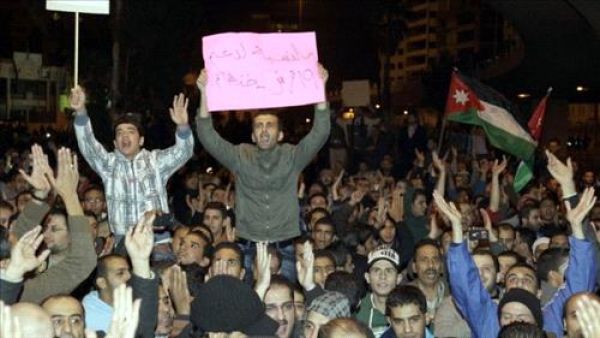Jordan, Bahrain and the United Arab Emirates (UAE) are the most economically free nations in the Arab world, according to a recent report.
The annual Economic Freedom of the Arab World report published by the Fraser Institute, an independent Canadian public policy think tank, said the three countries posted scores of 8, but Bahrain and the UAE saw a slight decrease from their 8.1 scores that topped last year’s report.
Jordan, which ranked second last year, maintained its 8 score, according to the report published in partnership with the Friedrich Naumann Foundation for Liberty (FNF) and the International Research Foundation (IRF) of Oman.
The top three countries were followed by Kuwait with a score of 7.8, Lebanon (7.7), Oman and Qatar posted the same score of (7.6), and Saudi Arabia (7.4).
The Economic Freedomof the Arab World report compares and ranks Arab nations in five areas of economic freedom: Size of government, including expenditures, taxes and enterprises; commercial and economic law and security of property rights; access to sound money; freedom to trade internationally; and regulation of credit, labour, and business.
Research shows that individuals living in countries with high levels of economic freedom enjoy higher levels of prosperity, greater individual freedoms and longer life spans, said the report.
Authors of the report said that denial of economic freedom helped spark the “Arab Spring”, adding that this report provides a timely reminder of the importance of real reform to increase economic freedom and prosperity throughout the region.
“Economic freedom is the key to increasing prosperity, creating jobs and reducing poverty. Economic freedom liberates people from government dependence and opens the door to democracy and other freedoms,” said Fred McMahon, co-author of the report.
Among the 18 nations in this year’s report, Algeria, last year’s last place country, again holds the dubious distinction of being the least economically free nation in the Arab world with a score of 5.8. Mauritania and Iraq ranked 16th and 17th, with scores of 6.3 and 6.1 respectively.
Due to the civil war in Syria, and the questionable data coming from the country, it was not ranked in this year’s report.
The report measures available data on economic freedom in 22 Arab members of the Arab League, but due to data limitations, calculations of the overall level of economic freedom were only available for 18 countries.
The report, which has been presented since 2005, is one of a number of regional reports based in part or in whole on the Fraser Institute’s annual Economic Freedom of the World Report, which ranks the economic freedom levels of 144 countries.








